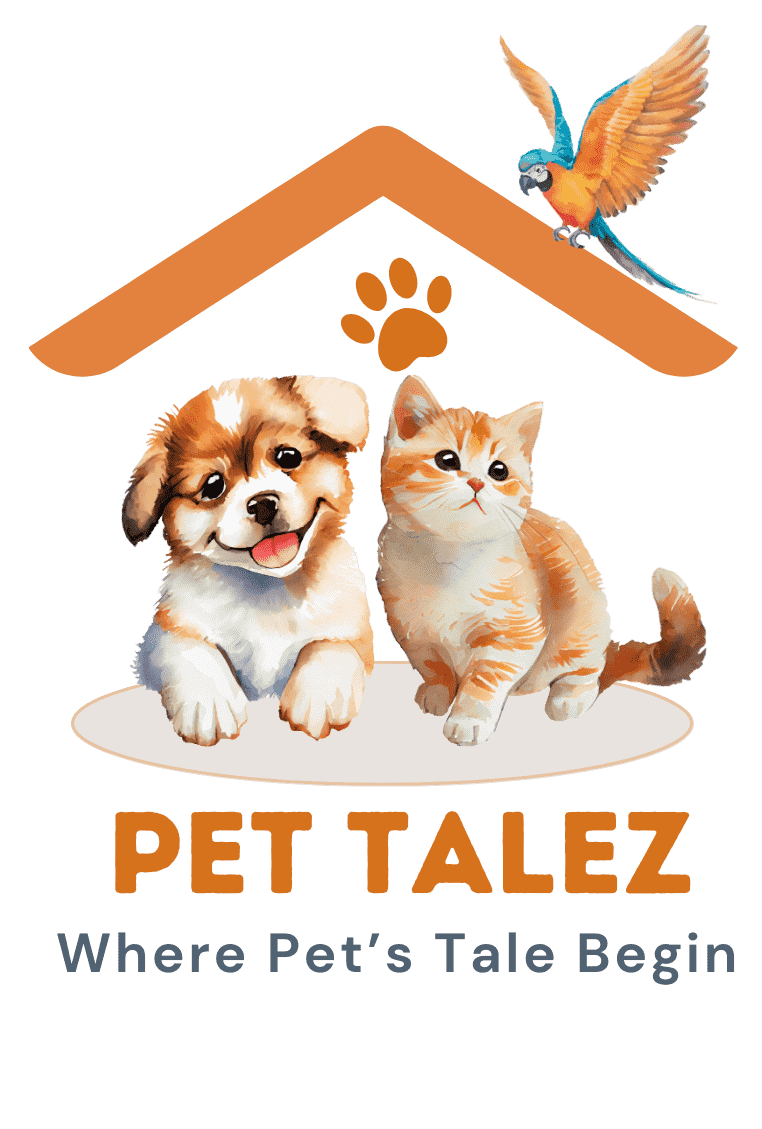Dog lovers and good owners like learning about different dog behaviors. Not all dogs are mean, but some are known for being strong. This guide talks about the top 10 most aggressive dog breeds of 2023. It helps readers be good owners and understand dogs better.
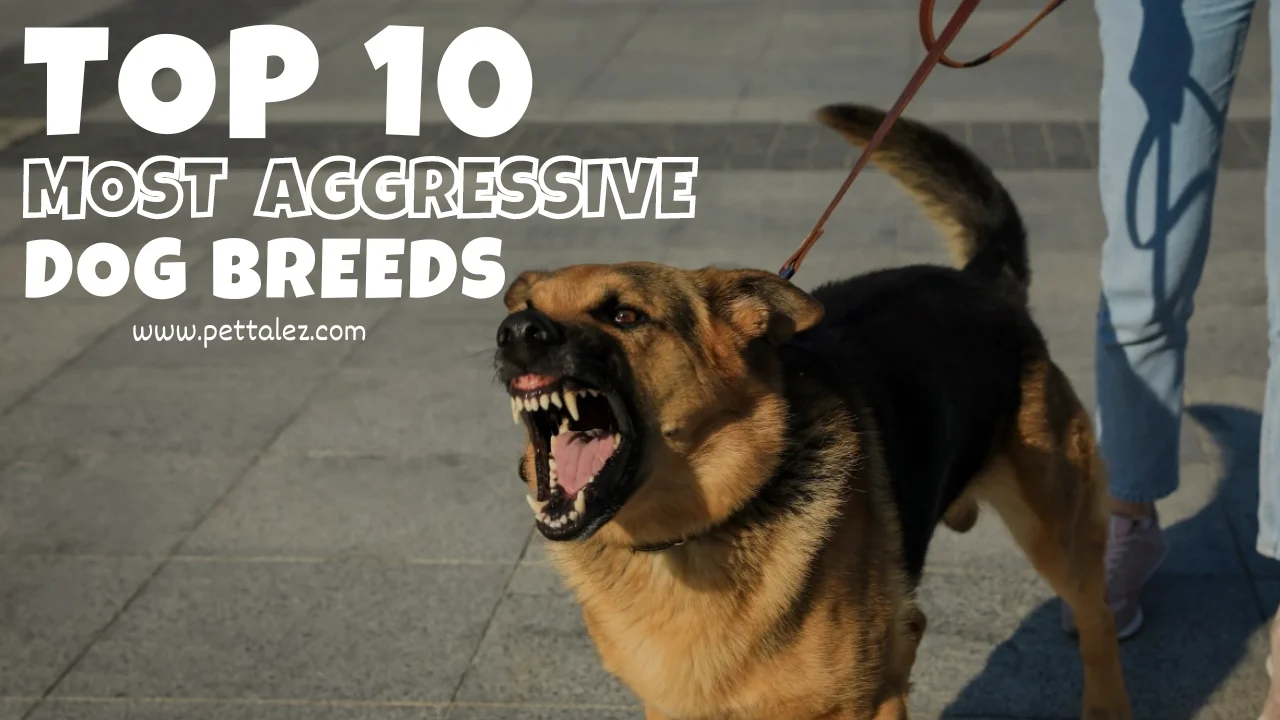
Brief Overview of Most Aggressive Dog Breeds
Dog aggression results from genetics, environment, and individual disposition. Addressing this complex issue requires acknowledging the importance of proper training and socialization. Take good care of your dog. A dog trainer will train them well. Any dog can be good with the appropriate training. It’s not about the dangerous dog breed. Ensure that your dog is content and secure. Treat them nicely.
Importance of Understanding Dog Behavior
Understanding dog behavior is crucial for responsible pet ownership. Watch how your dog acts. Listen to their sounds. This helps you know how they feel. It stops fights and keeps them happy. Uniquely train your dog. This builds a comfortable connection with your dog. Be kind and talk to them well. Every dog is different, so be aware of that. A healthy relationship with your dog depends on your understanding of them. It brings happiness to your lives together.
German Shepherd

Traits:
German Shepherd dogs are revered for their remarkable intelligence and versatile abilities. These dogs stand out for their quick learning and adaptability, as well as their being working dogs. While these traits contribute to their popularity, there are certain breed aspects that owners need to address proactively to ensure a well-behaved and balanced German Shepherd.
Common Aggression Issues:
Territorial behavior and overprotectiveness are common triggers for aggression in German Shepherds. Because they are very loyal and protective, German Shepherds might act mean if they think their home or family is in danger. Teaching them early is essential to stop these actions so they know when something is a real threat and when it’s not.
Training for a Well-Behaved German Shepherd:
Making sure your German Shepherd is well-behaved is super important! Teach them to follow commands and be friendly through special training. Let them meet different people and animals when they’re little so they aren’t scared.
To help them learn, use rewards like treats, praise, or love when they do good things. This makes them happy and strengthens the friendship between you and your German Shepherd. Positive training makes them behave well and keeps them feeling good overall.
Smart and versatile German Shepherds make awesome friends! Take good care of them by teaching them well, letting them meet others early, and being nice. This makes them good and loyal in different places and situations.
Miniature Poodle
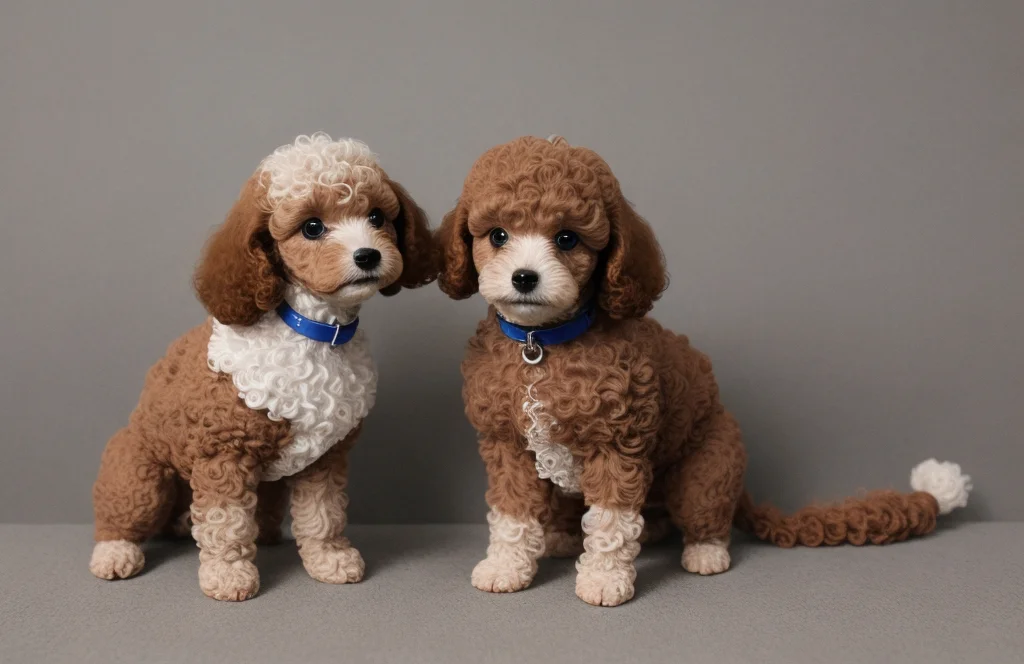
Characteristics:
The bright and stylish Miniature Poodle is unique among dog friends. Even though it might be unexpected, knowing how they act is essential for a happy friendship. Learning about what can make them work extremely aggressive helps first-time dog owners use the proper training for their Miniature Poodles.
Aggression Factors:
Miniature Poodles can exhibit territorial and protective tendencies despite their small dog size. This can result in behaviors that, if misunderstood, may be perceived as aggression. Dog owners must know and understand these things to stop their miniature poodles from being mean. Small breeds might act this way when they meet new people or animals, think their space is in danger, or feel uneasy in certain spots.
Training Tips:
Positive reinforcement methods are the most effective in cultivating a well-behaved miniature poodle. To make your Miniature Poodle happy and good:
-
Give treats, praise, or hugs for good things.
-
Have a regular schedule so your poodle feels safe.
-
Let your poodle meet different people and animals early on in a happy way.
Ultimately, intelligent dogs and stylish Miniature Poodles are happiest when owners use treats, keep a routine, and introduce them to the world early. This way, you’ll have a comfortable and good Miniature Poodle friend.
Rough Collie
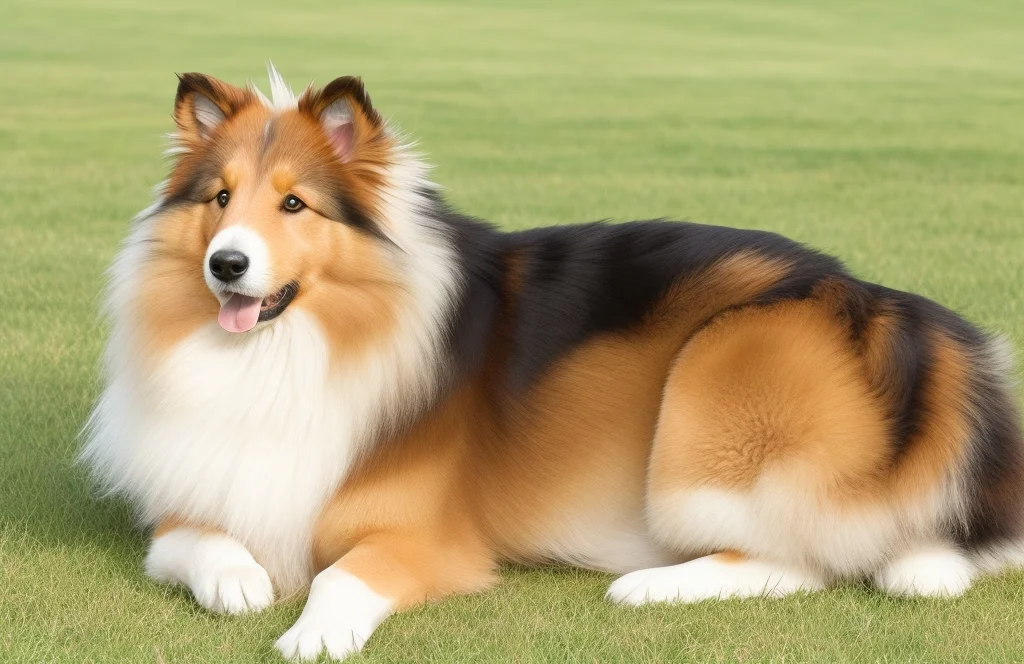
Breed Traits:
Loving and gentle, Rough Collies make great canine friends. They’re bright and love to join in family fun. Even though they are usually gentle, Collie owners need to know what might upset them to be responsible.
Aggressive Tendencies:
Rough Collies are usually calm, but some things can make them upset. Collie owners must know what might cause trouble to keep things safe and happy. Meeting new people or animals, protecting their space, or feeling scared can make them act out. Knowing these things helps owners stop problems before they get worse.
Handling Aggression in Collies:
Addressing aggression in Rough Collies requires a multi-faceted approach. Consistent training is fundamental, focusing on obedience commands and reinforcing positive behavior. Give treats, praise, or hugs when Collies behave well. This makes a good connection with their owner. Also, let Rough Collies meet different people and animals early on. This helps them get used to many things and be less aggressive or mean.
Keeping your Rough Collie happy and calm is super important. Make sure they have a cozy and safe spot to chill. Keep things that might bother them away. Help them feel safe and comfy in their home.
Ultimately, intelligent and gentle, Rough Collies are happiest when owners know what might upset them. Owners should teach them well and be nice. When owners understand and help with these things, Collies become excellent and happy friends.
Miniature Schnauzer

Overview of the Breed:
Miniature Schnauzers stand out for their alertness and spirited nature, making them charming and lively companions. Despite their small size, they are known for their confidence and intelligence. Responsible ownership involves understanding the factors contributing to aggression in this breed.
Aggressive Behavior Triggers:
Miniature Schnauzers, just like any dog, might act mean sometimes, especially if they feel scared. Recognizing these triggers is essential for preventing aggressive behavior. Owners need to watch their Miniature Schnauzer closely. If they meet new people or animals or feel trapped, owners should help them feel better.
Training Methods:
Teaching Miniature Schnauzers is essential for having a good and balanced pet. Give them treats, praise, or love when they do good things. Do it the same way every time to help them be good. Also, let them meet different people and animals when they’re little so they aren’t scared later. That’s the key to having a happy and friendly Miniature Schnauzer!
To sum up, Miniature Schnauzers are great friends when owners are careful. Knowing and fixing things that might upset them using nice training and early meetings make them excellent and happy pets.
Akita
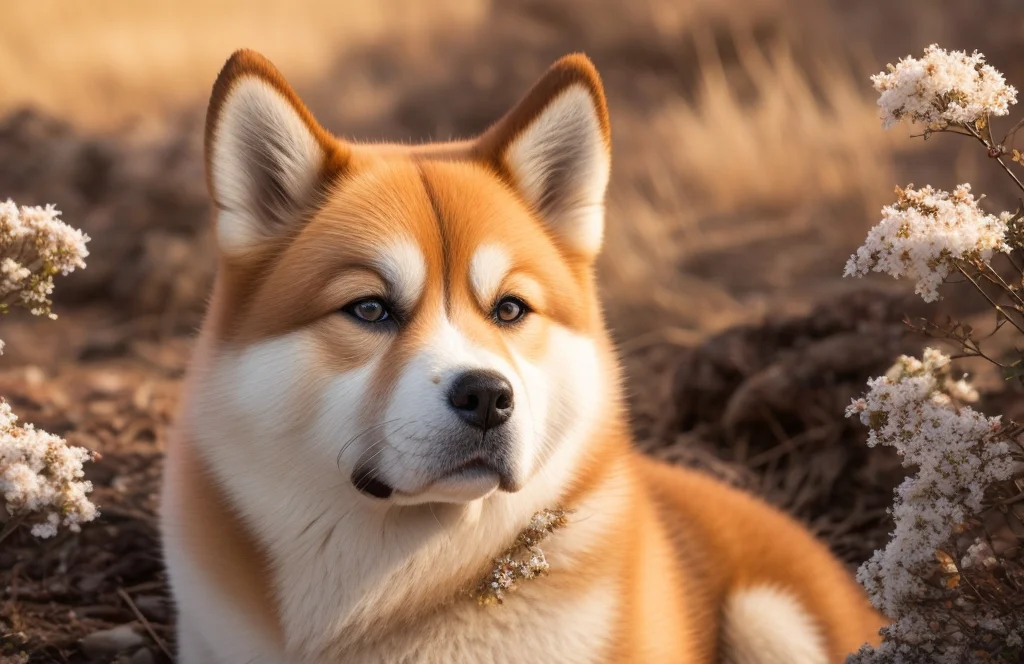
Breed Features:
Akitas are special and noble dogs. They’re loyal and robust, making them excellent guard dogs and friends. But to have a happy home, owners need to understand things that might make Akitas act aggressively.
Aggressive Tendencies:
Akitas are naturally reserved and protective, which might make them act mean sometimes. Owners must understand this to be responsible. Akitas might protect them, and knowing what makes them upset is essential to keep everyone safe and happy.
Socialization and Training:
Making friends early is essential for Akitas to be excellent. Show them different places and people when they’re little. Train them a lot and be nice to them. When they’re good, give them treats, praise, or love. This helps them listen and not be mean.
In summary, Akitas are happy in a loving home when owners know how to handle their possible mean actions. Early meetings and nice training help make them excellent and balanced, creating a strong bond with their owner.
Chow Chow

Characteristics:
Chow Chows are special dogs! They look different breeds and act a bit distant. Originally bred in China as an all-purpose dog for hunting, herding, and guarding, With their lion-like mane and blue-black tongue, they have their charm. Understanding the nuances of their nature is crucial for responsible ownership.
Dealing with Chow Chow Aggression:
Chow Chows are charming but might act mean if they feel scared. Responsible owners need to know this. Making a safe and cozy place for Chow Chows and using excellent training helps control any mean actions. Give treats or praise for good behavior to make them happy and build trust with the owner.
Training Suggestions:
Consistent training and early socialization are crucial to ensuring a well-behaved Chow Chow. Starting exercise at an early age helps them understand boundaries and expectations. Meet new friends early to make Chow Chows happy and friendly. Let them see different places, people, and animals. This helps them not be scared or mean.
In the end, Chow Chows need special care. Owners who know about possible mean actions and use excellent training early on will have a good and happy Chow Chow friend.
Rottweiler
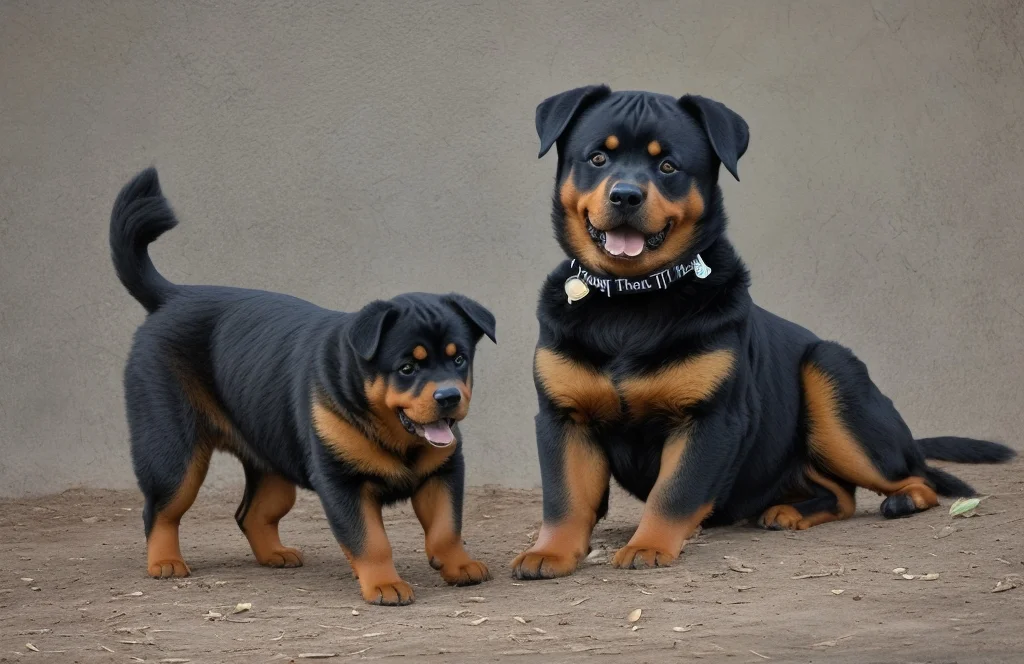
Breed Overview:
Rottweilers are renowned for their impressive strength and unwavering loyalty. Their robust build and steadfast demeanor make them excellent guardians and devoted companions. Knowing about Rottweilers is essential for being a good owner, even though their loyalty is excellent.
Recognizing Aggression:
Rottweilers might act mean because they want to protect, especially in some situations. Owners must see signs of meanness early and stop problems before worsening. Watching their Rottweiler’s body language and actions helps owners create a safe and happy place for the dog and others.
Positive Training Approaches:
Teaching Rottweilers with treats and praise works well. It makes a good connection between them and their owner. Keeping the training routine the same helps Rottweilers know what to do. In addition to teaching them, playing games is vital to make dogs happy and stop them from getting bored, which can sometimes make them act mean.
Solid and loyal Rottweilers are great friends when owners care for them. Stopping mean actions early and using excellent training makes them balanced and well-behaved. Knowing what Rottweilers need and spending time with them helps build a solid and lasting bond with your loyal friend.
American Pit Bull Terrier

Pit Bull Stereotypes:
Pit Bulls frequently encounter unjust stereotypes that cloud people’s perceptions of this breed. Good owners need to understand Pit Bulls and not believe wrong ideas about them. Doing so can foster a more positive and informed view of these dogs in our communities.
Understanding Their Behavior:
Pit Bulls are friendly and loyal, not mean as some people think. Their behavior depends on how they are raised and where they live. Teaching and letting them meet others early helps make a balanced and friendly Pit Bull. This means showing them different things, people, and animals in a happy and controlled way. When owners know how they act and care for them, Pit Bulls can be friendly and loving friends.
Responsible Ownership:
Owners play a pivotal role in shaping a Pit Bull’s behavior. Good ownership means more than just primary care. It includes teaching them well, letting them meet others, and caring for their body and mind. This means regular play, making them think, and being happy with people and other pets. When owners do these things for their Pit Bull, they help change wrong ideas and show that this breed is excellent.
In conclusion, if Pit Bulls are cared for and understood, they can be loving friends. Being a good owner helps break wrong ideas, show how good they are, and let others see their true nature. Training them right, allowing them to meet others, and caring for them make Pit Bulls well-behaved and loving family pets.
Wheaten Terrier
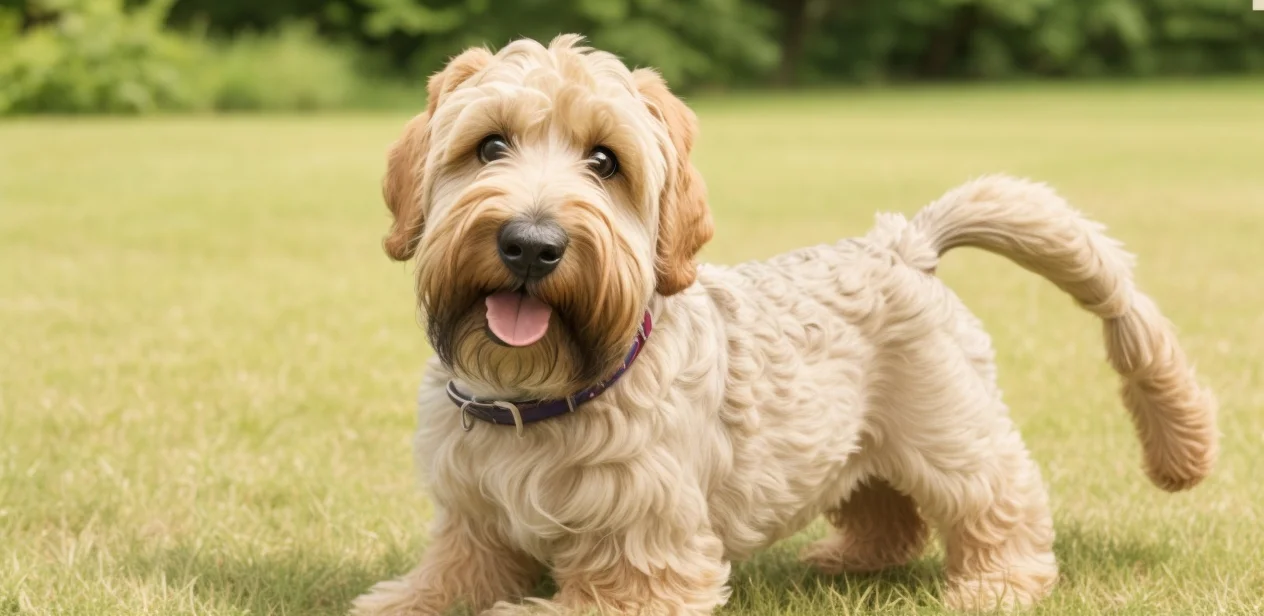
Breed Characteristics:
Wheaten Terriers have a soft coat and friendly personality. They are nice and good friends for families and individuals. But, like any dog, they might act mean sometimes. Owners must know what makes them upset to keep everyone safe and happy.
Potential Aggression Triggers:
While Wheaten Terriers are naturally friendly, specific situations can provoke aggression. Some things can upset Wheaten Terriers, like meeting new people or animals, feeling trapped, or reacting to certain things. Owners must watch and stop these things early to prevent them from being mean. Paying attention to their body language and actions helps owners see if they are upset, stopping possible meanness before it worsens.
Effective Training Techniques:
Make your Wheaten Terrier behave well by training them early. Use treats, praise, or love when they do good things. Let them meet different people and animals early and excellently. This makes them confident and friendly, so they don’t act mean in new situations. Help them like other things to be happy and friendly Wheaten Terrier!
To sum up, Wheaten Terriers are usually friendly. Good ownership means knowing and stopping anything that might make them tell. Train them nicely and let them meet others early. This makes them behave well and be friendly in different places and situations.
Siberian Husky
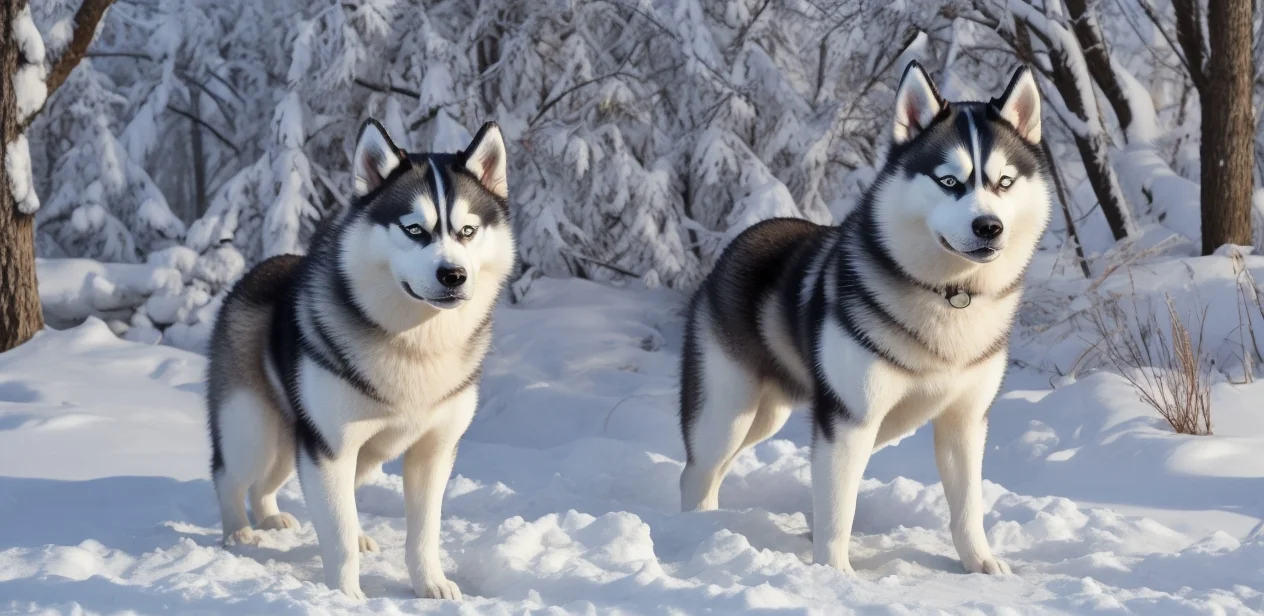
Unique Traits:
Siberian Huskies look fantastic with their unique appearance and blue eyes. They are known for being full of energy and doing things independently. Owners must understand these traits to have a good and happy relationship with them.
Addressing Husky Aggression:
A big challenge with Siberian Huskies is dealing with possible meanness, which can happen when they get bored or don’t have enough things to do. These lively dogs like to be active and have mental stimulation challenges. If they don’t get enough of that, they might act mean. To stop this, owners need to give them lots of exercise and do things that make them think. This helps to alleviate boredom and contributes to a well-behaved and contented Husky.
Training for Obedience:
Training a Siberian Husky demands a patient and consistent approach. Due to their independent nature, these dogs may not always be eager to comply with commands. Giving treats and praise helps Huskies behave well. Doing fun things during training makes them happy, and they listen better. Keeping the training routine the same helps them obey and not do something they don’t want. With time, work, and being positive, a Siberian Husky can become a good and well-trained friend for anyone who loves dogs.
Common Misconceptions About Aggressive Behaviour in Dog
Dispelling Myths:
Addressing common misconceptions about aggressive dog breeds helps promote a more accurate understanding. Not all aggressive behaviors are inherent to the breed.
Factors Influencing Aggression:
Genetics, environment, and upbringing significantly influence a dog’s behavior. Recognizing these factors is essential for responsible ownership.
Responsible Ownership and Training
Importance of Early Socialization:
Early socialization sets the foundation for a well-adjusted and non-aggressive pet. Exposing dogs to various experiences helps in preventing fear-based aggression.
Positive Reinforcement Training:
Training methods focusing on positive reinforcement strengthen the bond between owner and pet. Reward-based training encourages desirable behaviors.
Signs of Aggression and How to Handle Them in Different Dog Breeds
Recognizing Aggressive Behavior:
Understanding signs of aggression, such as growling or barking, is crucial. Prompt action and addressing the root cause contribute to a safe environment.
Immediate Actions to Take:
Removing the dog from the triggering situation and seeking professional guidance is essential if aggression occurs. Avoid punishment, as it may exacerbate the problem.
Conclusion: Top 10 most aggressive dog breeds 2023
In conclusion, knowing that some dogs might act mean is essential for good ownership. Even if a breed has certain habits, teaching them early, letting them meet others, and using excellent training can make them suitable and loving pets. Every dog is different, and knowing the breed’s needs helps build a strong friendship.
FAQs
Q. How to socialize aggressive Breeds?
A. Socializing an aggressive breed requires patience and consistency. Take your dog to new places and let them meet new people and animals. This helps make their behavior better.
Q. Can aggression in dogs be eliminated?
A. Training a lot and being a good owner can make dogs less mean, even if they might not wholly stop being mean.
Q. Are these breeds suitable for families with children?
A. With the proper training and watching, many breeds are suitable for families. It's essential to understand each dog's personality and pick one that fits your family's way of life.
Q. Is aggression in dogs always a result of breed traits?
A. Aggression can stem from various factors, including genetics, environment, and individual temperament. Breed traits may contribute, but responsible ownership and training play crucial roles.
Q. What signs indicate a dog is becoming aggressive?
A. Signs of aggression include growling, baring teeth, raised fur, and a tense body posture. Recognizing these cues early allows owners to address and manage potential aggression effectively.
